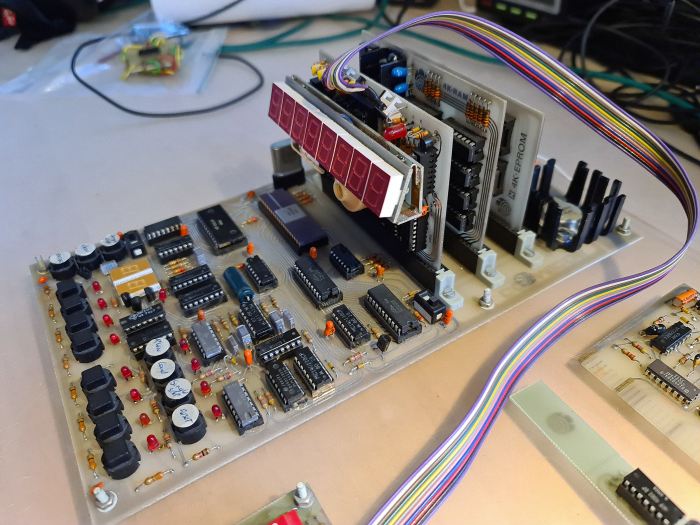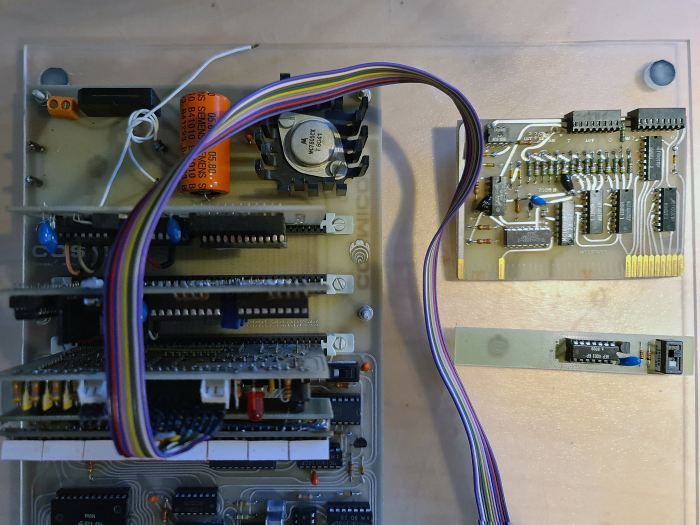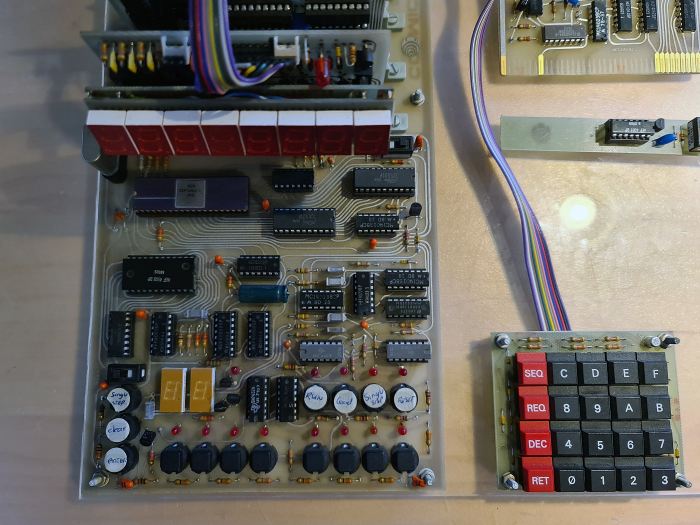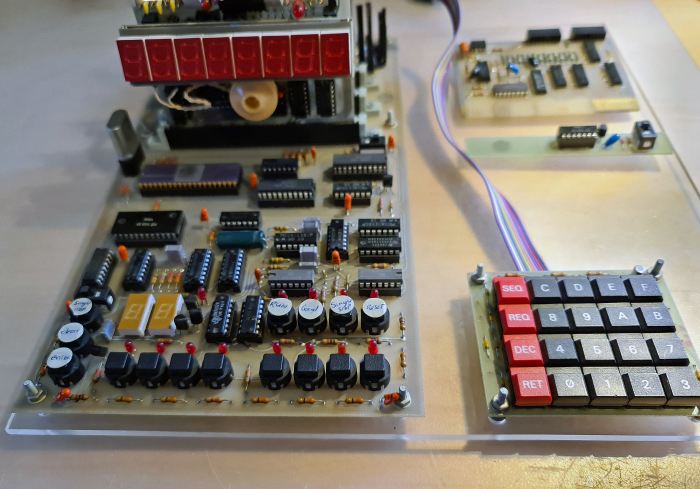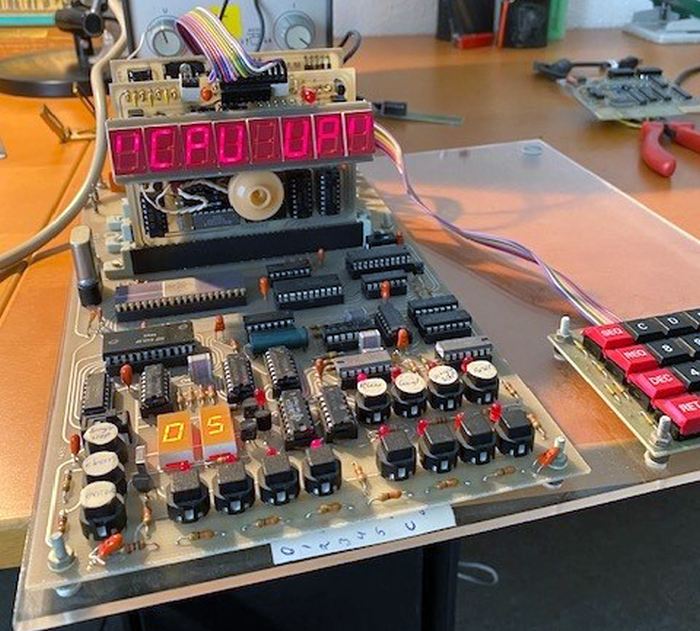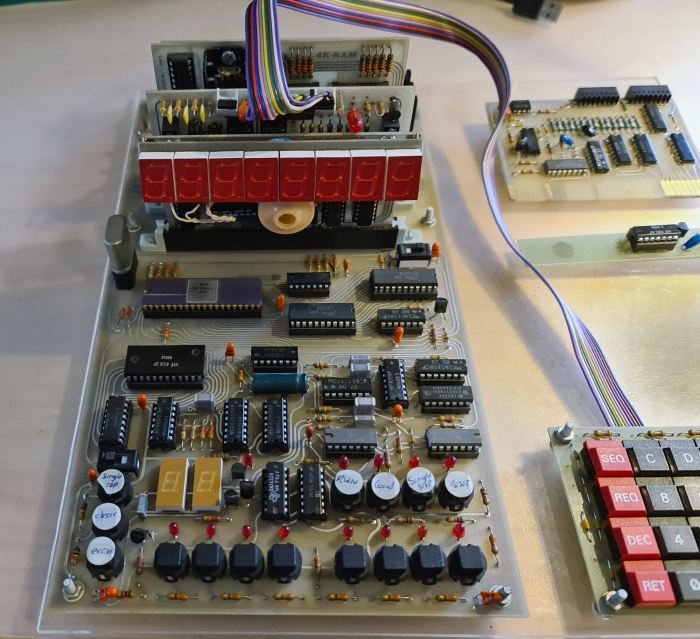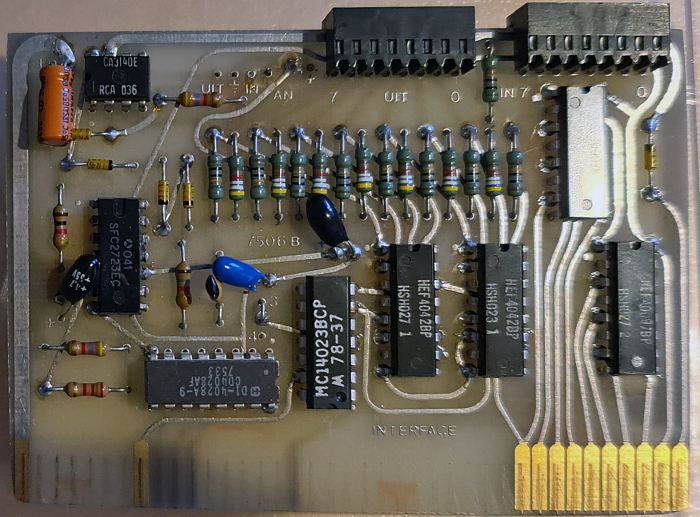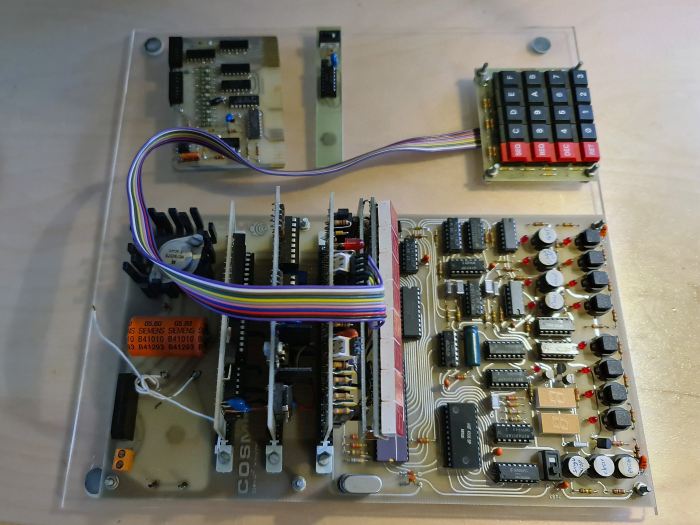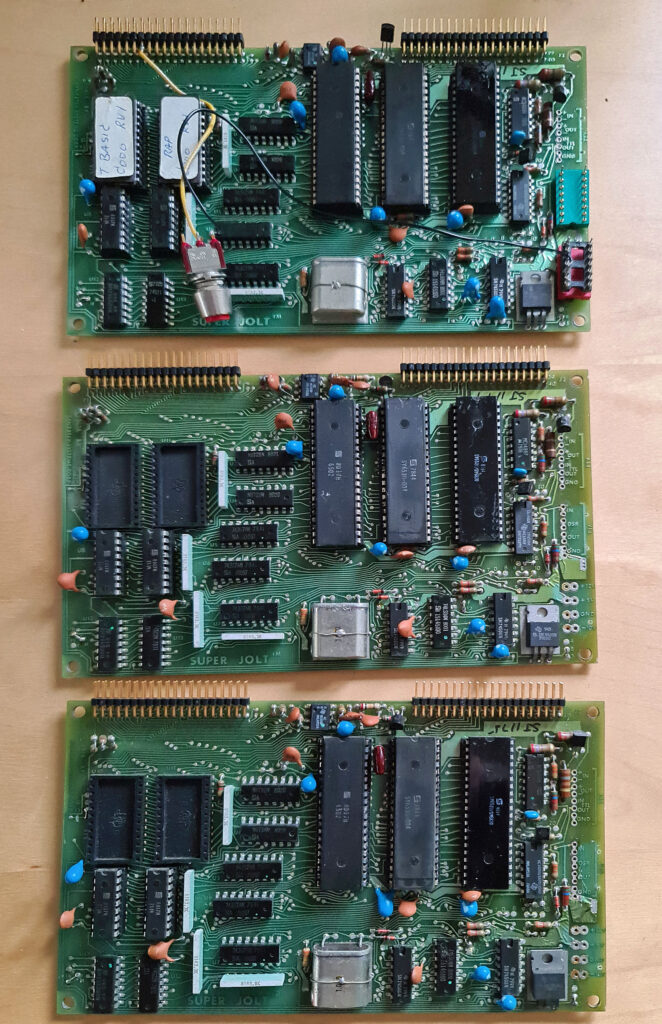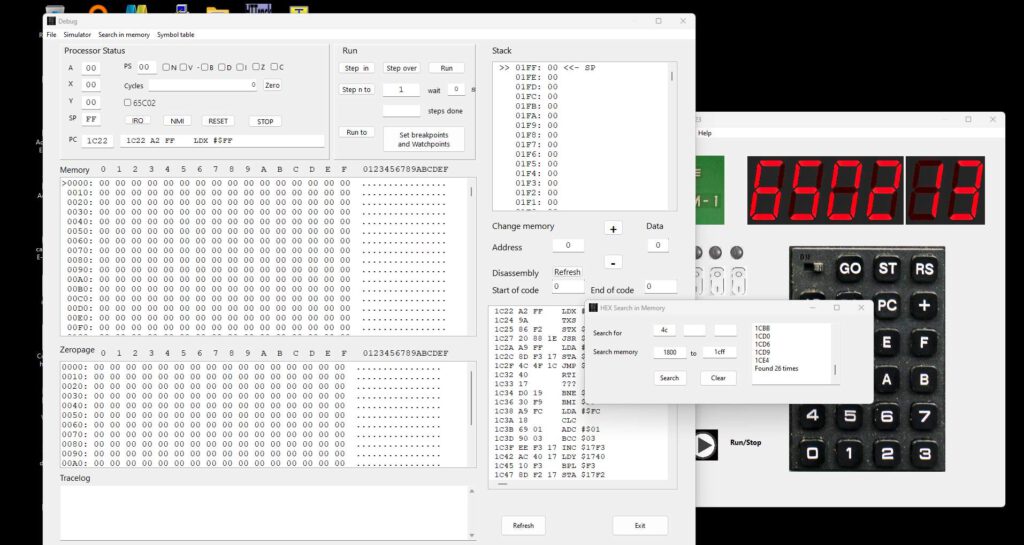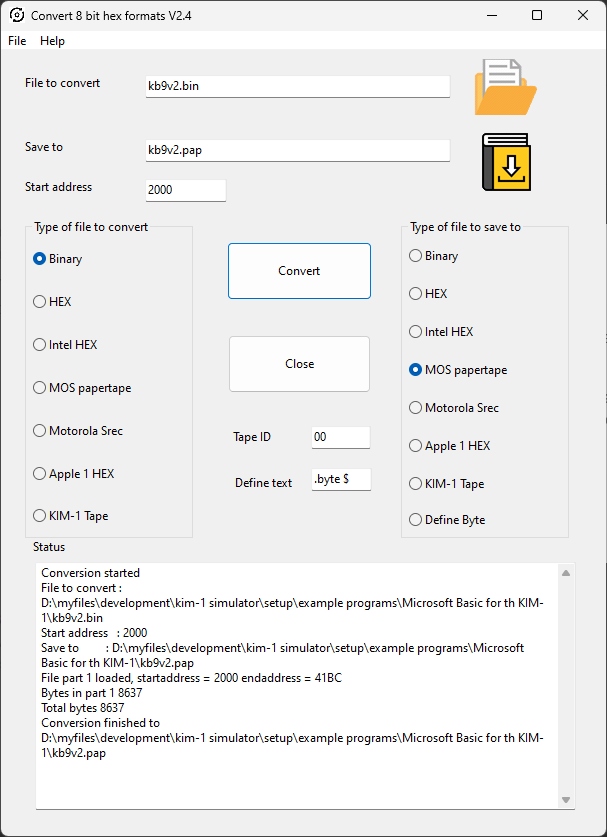Author Archives: hanso
New scans of KIM-1 manuals
I found new high quality scans of KIM-1 manuals on the Retro Commodore website.
That website is filled with high quality scans of Commodore publications.
High quality scans of the User, Programming, Hardware manuals. Also scans of KIM-5 related manuals like Assembler and Editor (a new one for me!).
The originals are from a German distributor, there is a sticker on the frontpage.
I thank Carsten Jensen for his invaluable work!
Manuals are added also to the KIM-1 manuals page, which did get a cleanup too. 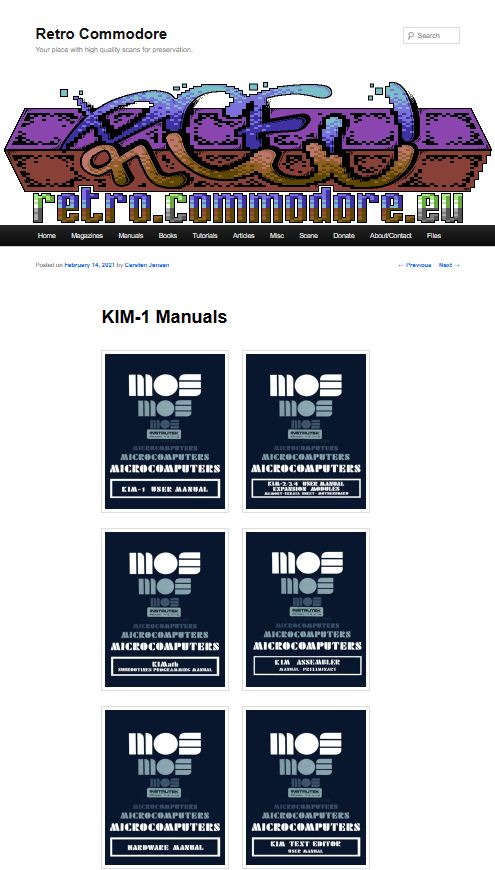
See also:
KIM-1 connectors: beware the Chinese cheap variants!
Magazines: Compute! and Compute II
All documents in the MTU pages are now clean and higher quality, about 50 new PDFs.
Focal-65 V3D for TIM and KIM-1
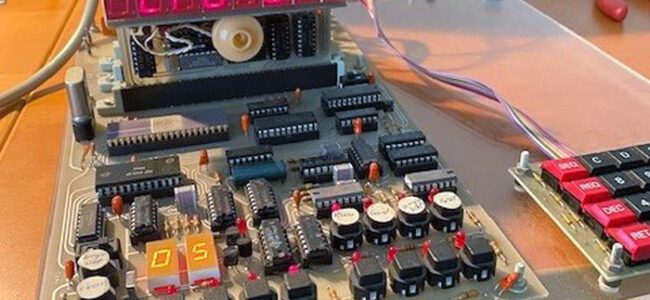
Cosmicos donation
Cosmicos is the name for a SBC around the RCA 1802 CPU. Cosmicos stands for COSMAC MINI COMPUTERSYSTEM.
Published in the dutch magazine Radio Bulletin, developed by the editor (later editor in chief) Bob Stuurman.
The system is loosely based on the Cosmac ELF design. Compatibility with the ELF was later improved in the cassette routine loader, Tom Pittmann’s Tiny Basic and such.
Read all about the Cosmicos here.
See also:
PC utilities updated
FABGL library serial and development board
NOP testers
Large update on Pascal
Superjolt and TIM 6530
I have acquired 3! Superjolts. With a Synertek Superjolt CP110 manual and Tiny Basic + RAP (assembler) in ROM.
A good opportunity to update the 6530 and the Jolt SuperJolt pages. Better quality and more documents, more photos, ROMs dumped.
See also:
KIM-1 connectors: beware the Chinese cheap variants!
Magazines: Compute! and Compute II
All documents in the MTU pages are now clean and higher quality, about 50 new PDFs.
Focal-65 V3D for TIM and KIM-1
V1.3.7 KIM-1 Simulator
New version of the KIM-1 Simulator. Now version 1.3.5. 3 oktober, and now 9 oktober 1.3.7!
– text file upload in console also accepts UNIX style line endings and DOS type
– Debugger more visible in main form, and new menu with Search, Fill, Move/copy in memory
– added PRG Commodore binary file load and save (for the IEC users!)
– debugged and tested the VT100 codes of the console
See also:
KIM-1 connectors: beware the Chinese cheap variants!
Magazines: Compute! and Compute II
All documents in the MTU pages are now clean and higher quality, about 50 new PDFs.
Focal-65 V3D for TIM and KIM-1
Patches to Microsoft Basic K-1008-2L MTU
Added to the MTU pages:Patches to Microsoft Basic K-1008-2L sources and binaries, ready to run!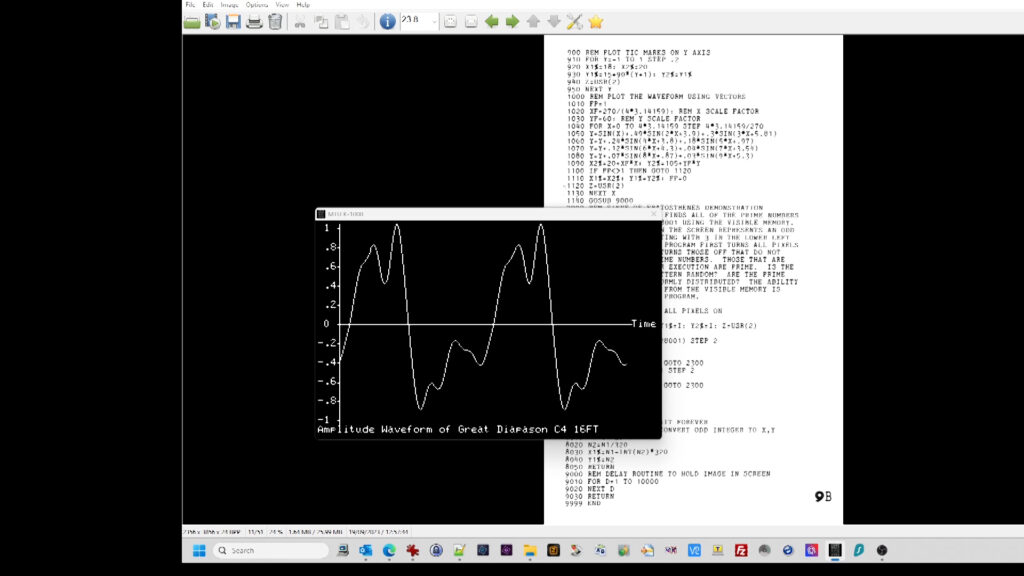
See also:
KIM-1 connectors: beware the Chinese cheap variants!
Magazines: Compute! and Compute II
All documents in the MTU pages are now clean and higher quality, about 50 new PDFs.
Focal-65 V3D for TIM and KIM-1

New KIM-1 info and more
Added again some KIM-1 information!
Scans from the Commodore International Historical Society (Dave McMurtrie):
KIM-1 Schematic Poster alternative scan (Dave McMurtrie)
Johnson Computers and McShane brochures
MOS Newsletters and brochures
Microsoft Basic for KIM-1 alternative scan
KIM-1 ROMs source listing scan
KIM-1 DATA1-K assembler manual (incomplete)
See also:
KIM-1 connectors: beware the Chinese cheap variants!
Magazines: Compute! and Compute II
All documents in the MTU pages are now clean and higher quality, about 50 new PDFs.
Focal-65 V3D for TIM and KIM-1
MTU K-1008 Visable Memory
All about the MTU K-1008 Visible Memory: documents, programs, images, videos and replica, you find it here.
The MTU K-1008 is an 8K memory and video display board. Part of the MTU family of card cages and RAM/ROM boards, around 1978 for KIM-1, SYM-1, AIM 65. Later also for Commodore PET systems.
I have some K-1008 information on paper as Fall Catalog and K-1008 User manuals of MTU, the listings in the Graphics software Package and hires photos of the board.
Triggered by Dave Plummer, who owns a K-1008 and made some demo programs I added this spring the K-1008 as peripheral to the KIM-1 Simulator.
A basic working version, with memory settings as the original. A 6502 program in the simulator could fill the video display.
Dave made nice youtube videos about his KIM-1 system with MTU cards in a card cage, see Dave’s Garage.
Then Eduardo Casino, of KIM-1 Replica fame, started to design a replica, including an expansion bus. He motivated me to enhance the Simulator.
Eduardo also OCR’ed and typed in the Graphics Software Package programs for the MTU K-1008. I played with the sources and coupled the text display programs to Microsoft KB9 Basic.
He made a quick and dirty binary image to show on the K-1008 video display. I took his idea and added a facility to the Simulator to load any image to the K-1008.
This requires the use of GIMP, the image handling program, to create intermediate black and white 320×200 files as ‘C header files’.
These C header file can be imported in the Simulator and shown on the display. A command line utility LoadK1008 converts these C header files to a binary image in K-1008 format.
Update 10 september: Eduardo Casino has made available his work on the Graphics Software Package: OCR’ed manual, listings, sources, binaries made with 64tass assembler.
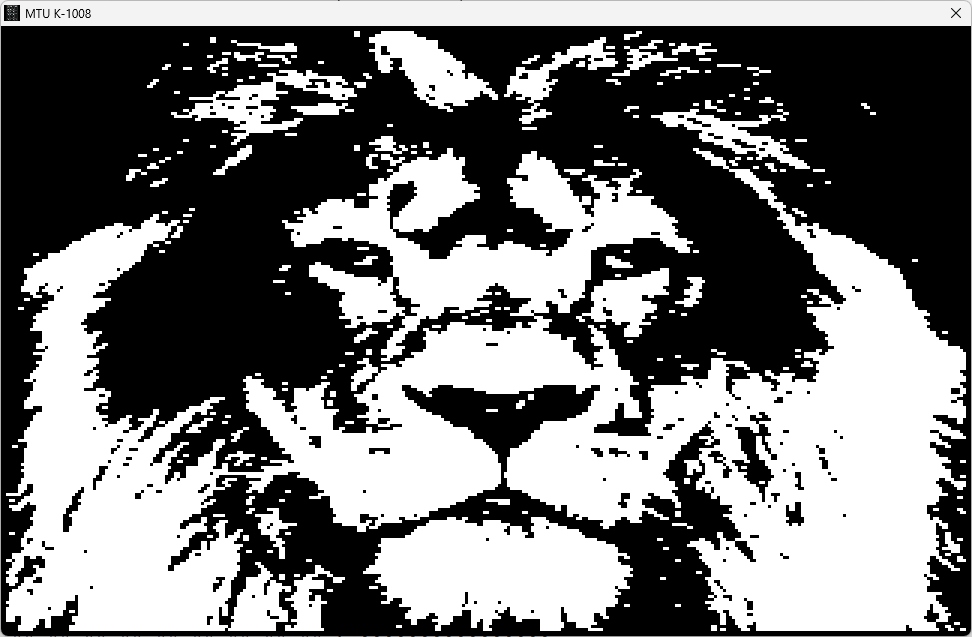
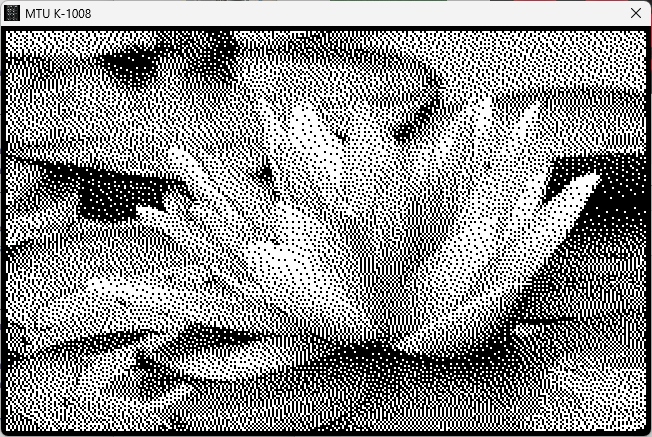
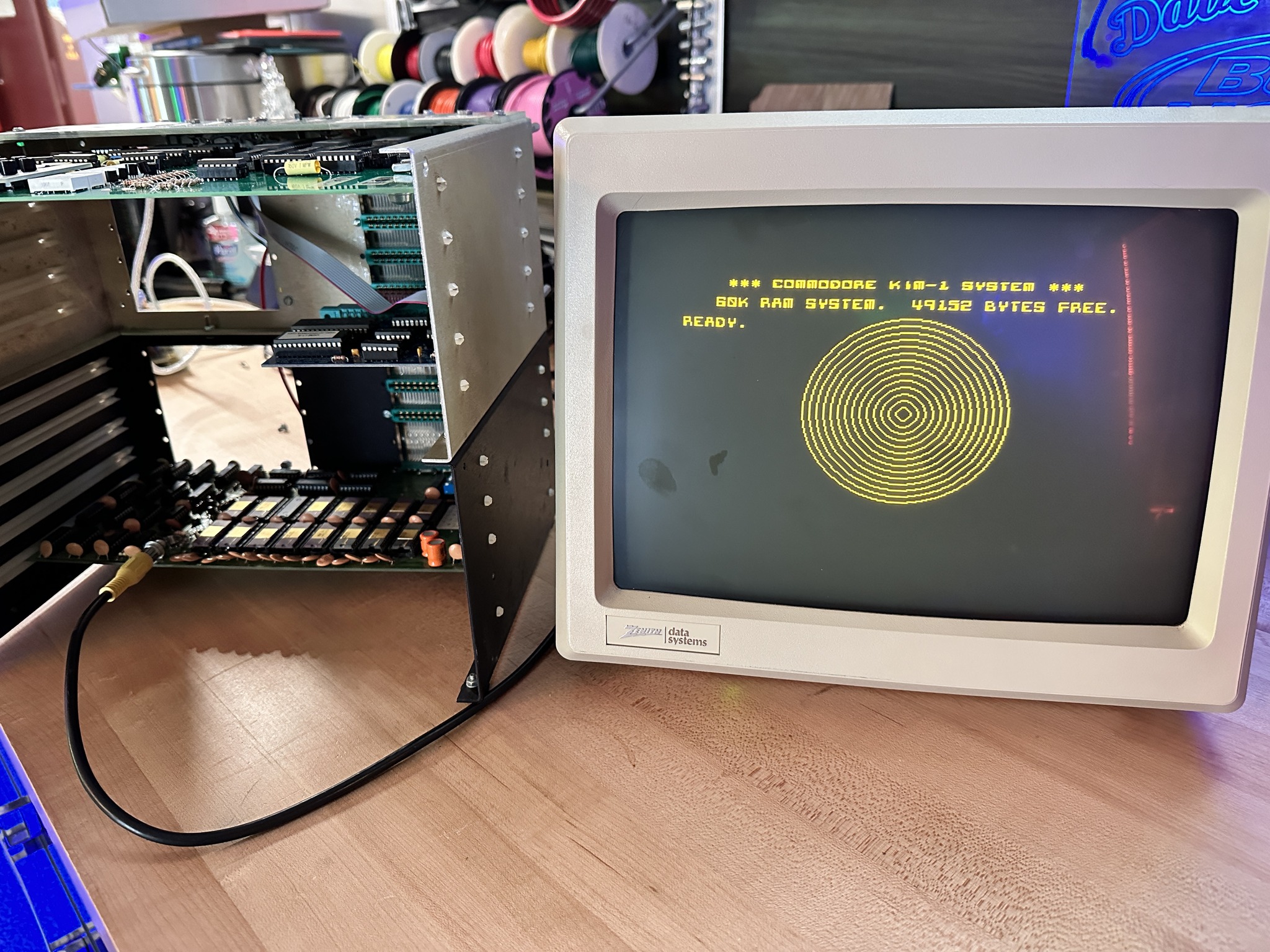
See also:
KIM-1 connectors: beware the Chinese cheap variants!
Magazines: Compute! and Compute II
All documents in the MTU pages are now clean and higher quality, about 50 new PDFs.
Focal-65 V3D for TIM and KIM-1
KIM-1 Simulator 1.3.0 -> 1.3.4
KIM-1 Simulator 1.3.x adds the improvements from the 1.2.x branch to the V1.1.8 branch.
NEw improvements also: bundled with the also recently updated Convert 8 bit Hex formats program and the SST switch now turns on the built-in debugger!
1.3.1 Adds refresh of K-1008 memory with File/tapeload and debugger refresh.
1.3.2 Load C header image files into K-1008 video display, and command line utility to convert C header file to K-1008 binary
1.3.3 Adds a more realistic aspect ratio variant of the K-1008 display besides the simpler and therefore faster ones.
V 1.3.4 August 31 Read text file to console improved, improved K-1008 settings
Have fun with this release and as always: keep me posted of wishes and bugs.
You may ask, but this will never be more than a simulation and not a real KIM-1 emulator, many First Book of KIM programs that manipulate the LED displays will not work in this simulator architecture. TTY programs work well. Use the debugger!
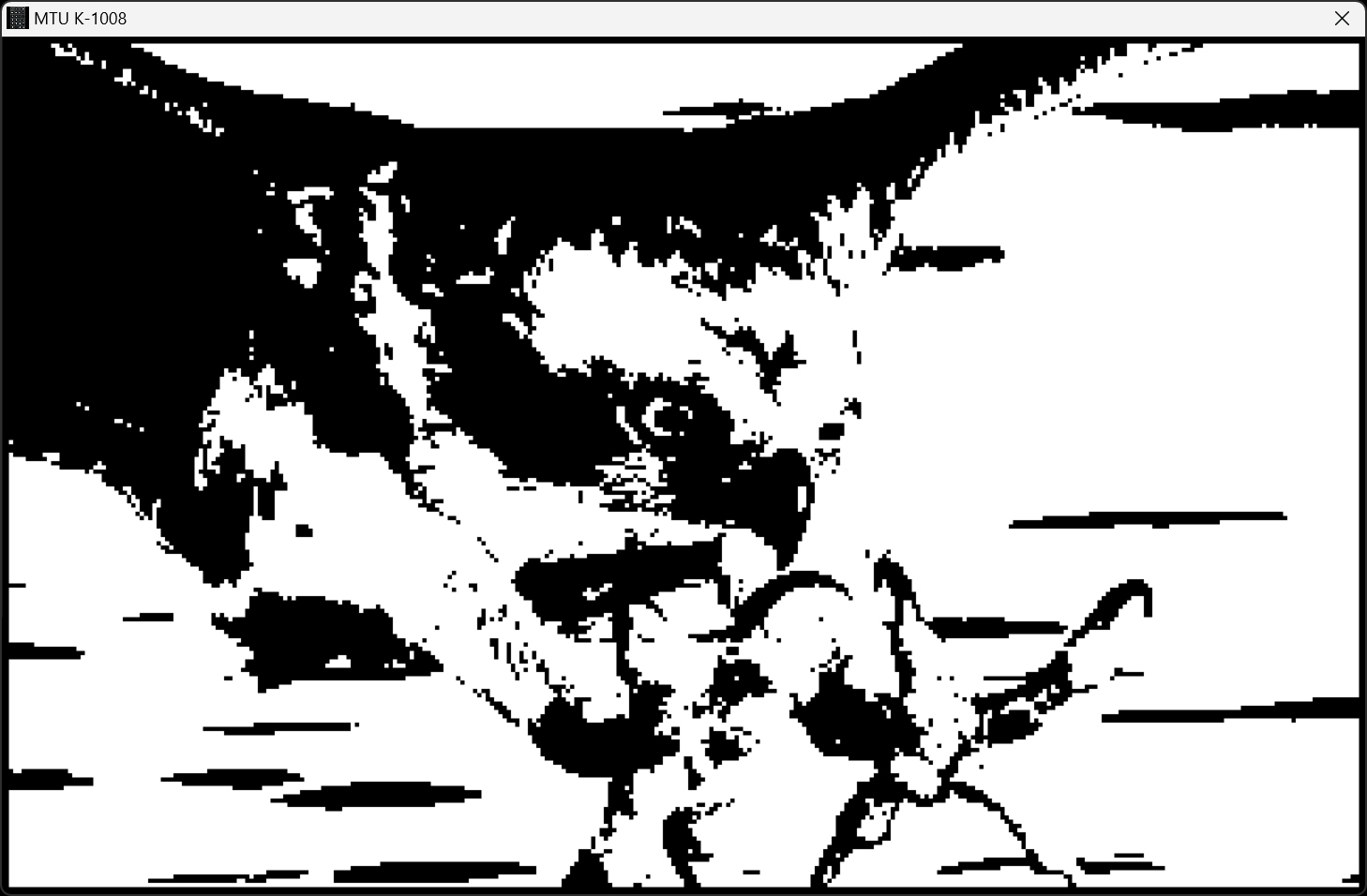
See also:
KIM-1 connectors: beware the Chinese cheap variants!
Magazines: Compute! and Compute II
All documents in the MTU pages are now clean and higher quality, about 50 new PDFs.
Focal-65 V3D for TIM and KIM-1
Convert8bit hex V2.4
The Convert 8bit hex formats utility has reached version 2.4.
Bugs fixed:
– one off papertape save fixed
– KIM tape format more robust
New save format: Define Byte. assembler formatted .byte $XY, prefix text user defined.

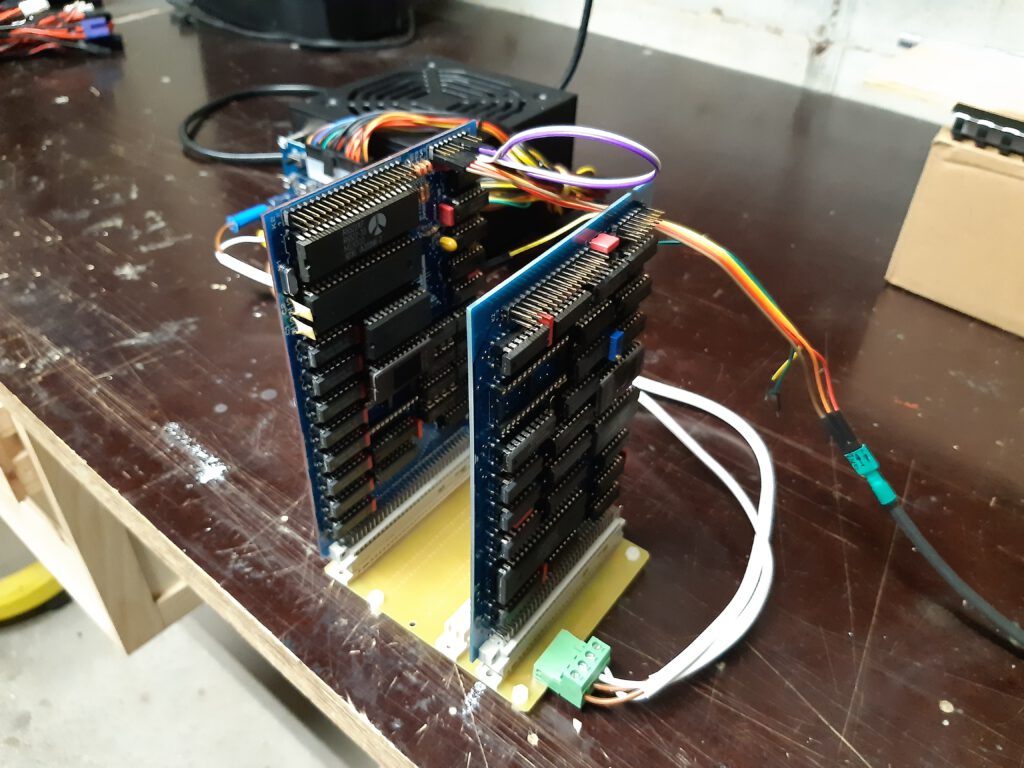 .
.